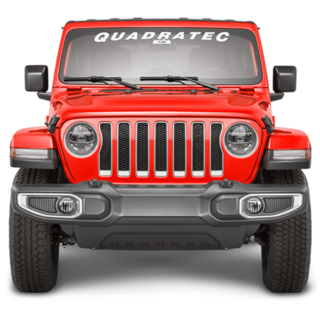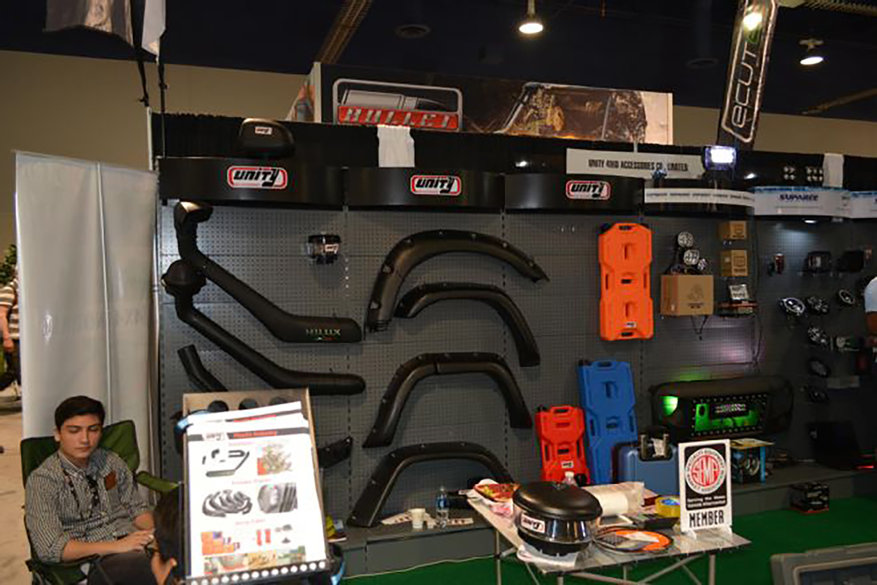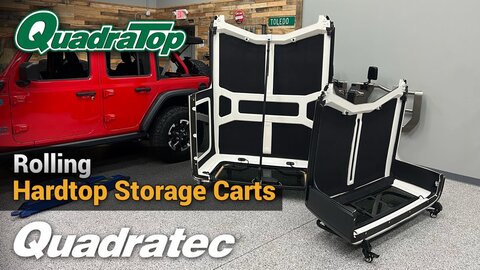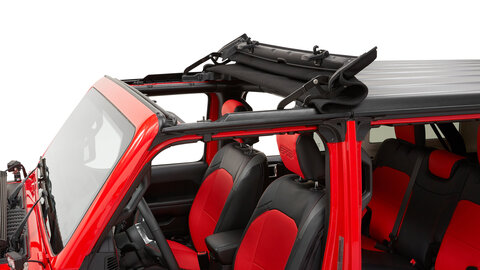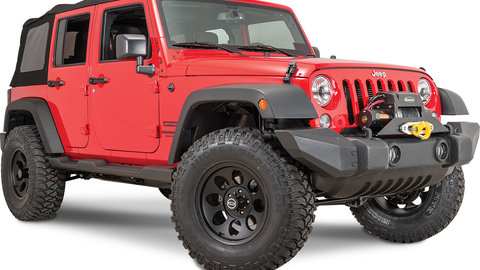Three off-shore automotive companies have been ordered to immediately cease manufacturing, importing and selling Jeep aftermarket products in the U.S., after a district court judge ruled their parts violated patents and trademarks held by Omix-ADA, a leading Jeep aftermarket manufacturing giant.
Guangzhou Vcan Electronic Technology Co., Ltd., Shenzhen Unisun Technology Co., Ltd., and Unity 4WD Accessories Co., Ltd were all found in violation by Chief Judge Gloria M. Navarro of the U.S District Court, District of Nevada after each company declined to agree to settlement terms, Omix-ADA said in a company press release earlier this month. These three companies were also ordered to destroy all product, marketing materials and catalogs, while surrendering any manufacturing tooling.
Two other companies, Changzhou Jiulong Auto Lamps Factory and Sanmak Lighting Co. Ltd. were found in violation by Navarro as well, but did agree to settlement terms, according to the Omix-ADA statement. These terms were not made public, but Omix-ADA said the agreement ‘established clear-cut guidelines preserving the security of patents and other intellectual property, which is an enormous victory for both manufacturers and consumers.’
“While this triumph of the justice system does not undo any damage already done, it does help establish a significant precedent to uphold across the automotive aftermarket in the future,” the company stated in its release. “With counterfeiting and infringement becoming a widespread problem throughout the industry, aggressively combating any occurrences through the proper legal channels makes it very clear that such actions will not be tolerated.”
The court ruling was a direct result of complaints Omix-ADA filed against multiple international vendors - including the five listed above - at last November’s Specialty Equipment Market Association show in Las Vegas.
Based on the merit of those claims, Navarro had authorized U.S. Marshals to execute search and seizure operations at the SEMA venue, as well as a concurring show nearby, which placed a temporary halt to the alleged illegal activity.
”It is important for companies to protect themselves,” said Peter MacGillivray, SEMA Vice President of Communications and Events. “While this kind of thing is not rampant, these kinds of situations can happen from time to time and can be very serious. And when it does, this is not the time to be unprotected.”
SEMA is also very vigilant all year long about making sure the exhibitors and attendees at its show conform to best business practices, MacGillivray said, and has policies in place to ban those who do not.
“We do a great deal of screening before the show both on the attendee and exhibitor side. It is not as simple as you pay and get a space. We have a team that screens during the year to make sure attendees and exhibitors fit our criteria for a marketplace, and one criteria is to hold attendees and exhibitors accountable for behaving as a good business.”
“Any company found in violation of this, of using others’ intellectual property, does not get to participate at the show. And we do a lot of screening work during the year to make sure this is the case.”
The 2017 SEMA show is set for October 31-November 3 at the Las Vegas Convention Center.



